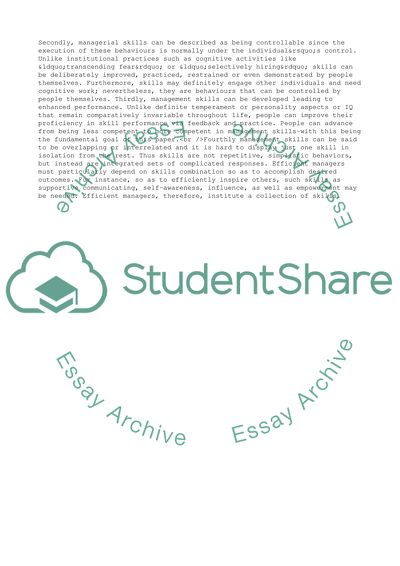Cite this document
(“The importance of developing management skills Essay”, n.d.)
Retrieved from https://studentshare.org/business/1684458-the-importance-of-developing-management-skills
Retrieved from https://studentshare.org/business/1684458-the-importance-of-developing-management-skills
(The Importance of Developing Management Skills Essay)
https://studentshare.org/business/1684458-the-importance-of-developing-management-skills.
https://studentshare.org/business/1684458-the-importance-of-developing-management-skills.
“The Importance of Developing Management Skills Essay”, n.d. https://studentshare.org/business/1684458-the-importance-of-developing-management-skills.


